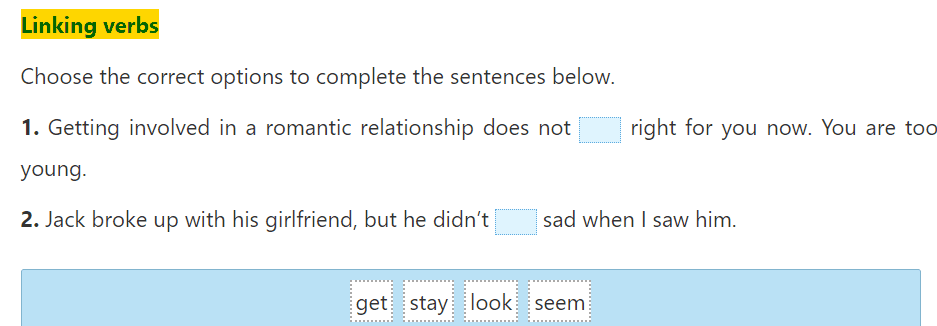Bài học cùng chủ đề
Báo cáo học liệu
Mua học liệu
Mua học liệu:
-
Số dư ví của bạn: 0 coin - 0 Xu
-
Nếu mua học liệu này bạn sẽ bị trừ: 2 coin\Xu
Để nhận Coin\Xu, bạn có thể:

Luyện tập SVIP

Put one of the adjectives in the box in each blank


Dear Oggy,
We're having a fabulous time here in Hoi An. You know, it's a(n) (1) town 30 km from Da Nang. The weather is very (2) and sunny. Our hotel is small but (3) . The staff are friendly and (4) .
We've seen most of the sights of the town. The street life here is (5) . We've spent a lot of time wandering around and looking at the (6) temples, bridges, and houses. We've also bought a lot of (7) souvenirs, crafts, and clothing. Well, the street food in Hoi An is (8) and affordable. I wish you could be here with us!
Anyway, I hope things are good with you.
Lots of love,
Jack
(Kéo thả hoặc click vào để điền)
Which of the following adjectives describe city life? Put a tick.
Put a suitable adjective below in each blank.
1. She lives in one of the most parts of the city: there are lots of luxury shops there.
2. How ! The roads are crowded and I'm stuck in a traffic jam.
3. You can't stop here. Parking is in this street.
4. This city is very , there are people here from all over the world.
5. The gallery downtown has regular exhibitions of art.
6. Nhieu Loc canal in Ho Chi Minh City is much less than before.
(Kéo thả hoặc click vào để điền)
Listen and repeat, paying attention to the difference in the underlined pronouns. Choose the pronouns that sound strong.
1. A: Can you come and give me a hand?
B: OK. Wait for me!
2. A: Did you come to the party last night?
B: Yes. But I didn't see you.
3. A: Look - it's him!
B: Where? I can't see him.
4. A: They told us to go this way.
B: Well, they didn't tell us!
Listen and mark the underlined words as W( weak) of S( strong).
Example:
A: Are you going to talk to him (W)?
B: No, I think he (S) should talk to me (S) first.
1. A: Is he () there?
B: No. Everybody else is, but he's () gone home!
2. A: Do you know that woman?
B: Her ()? Er… No. I don't recognise her ().
3. A: I'm afraid we () can't stay any longer.
B: What do you mean ‘we' ()? I've () got plenty of time.
4. A: Look! Everybody's leaving.
B: What about us ()? Shall we go, too?

Bạn có thể đăng câu hỏi về bài học này ở đây
